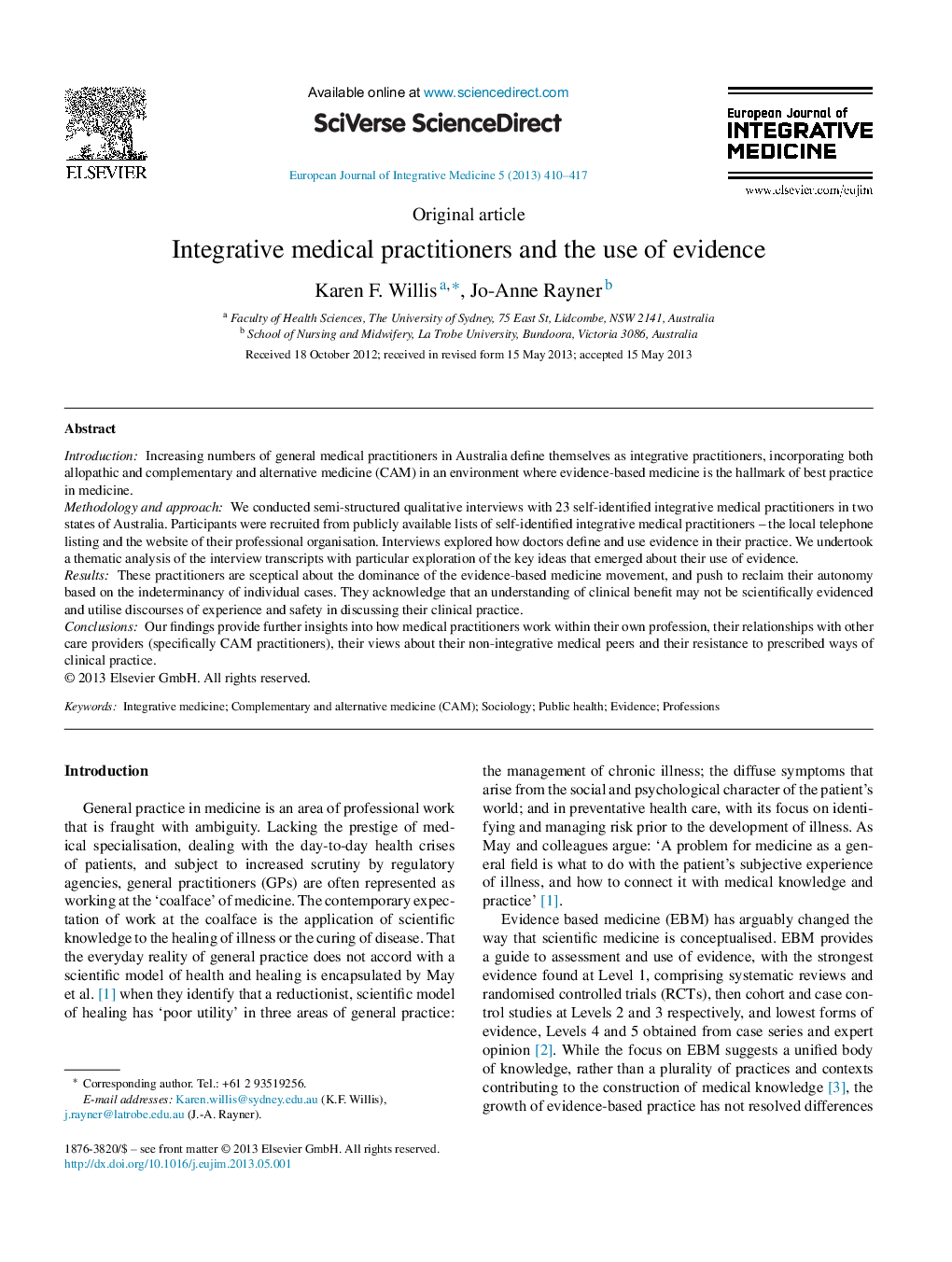| کد مقاله | کد نشریه | سال انتشار | مقاله انگلیسی | نسخه تمام متن |
|---|---|---|---|---|
| 5808091 | 1556067 | 2013 | 8 صفحه PDF | دانلود رایگان |
IntroductionIncreasing numbers of general medical practitioners in Australia define themselves as integrative practitioners, incorporating both allopathic and complementary and alternative medicine (CAM) in an environment where evidence-based medicine is the hallmark of best practice in medicine.Methodology and approachWe conducted semi-structured qualitative interviews with 23 self-identified integrative medical practitioners in two states of Australia. Participants were recruited from publicly available lists of self-identified integrative medical practitioners - the local telephone listing and the website of their professional organisation. Interviews explored how doctors define and use evidence in their practice. We undertook a thematic analysis of the interview transcripts with particular exploration of the key ideas that emerged about their use of evidence.ResultsThese practitioners are sceptical about the dominance of the evidence-based medicine movement, and push to reclaim their autonomy based on the indeterminancy of individual cases. They acknowledge that an understanding of clinical benefit may not be scientifically evidenced and utilise discourses of experience and safety in discussing their clinical practice.ConclusionsOur findings provide further insights into how medical practitioners work within their own profession, their relationships with other care providers (specifically CAM practitioners), their views about their non-integrative medical peers and their resistance to prescribed ways of clinical practice.
Journal: European Journal of Integrative Medicine - Volume 5, Issue 5, October 2013, Pages 410-417
